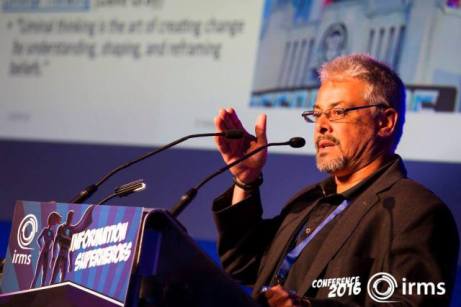
South Yorkshire Police (Photo credit: Wikipedia)
For 27 years, the South Yorkshire Police (SYP) were institutionally silent about their Hillsborough failures. For 27 years the officers maintained their silence. For 27 years, they fought hard to deny the truth. The issue was not a dispute over evidence. The issue was not about interpretations. The issue was between truth and lies. The Police chose to defend the lies. There are now criminal investigations into the lies. The same approach emerged with the Child Sexual Exploitation (CSE) scandal within Rotherham. As the Drew Report found, the police lacked professional curiosity.[1]
Where is the debate over police, ethics, culture, and leadership?
What we do not have is a debate or investigation into the police culture of silence. The silence enabled a force to preside over the Orgreave, Hillsborough, and Rotherham scandals without breaking its silence about its behaviour or its effect. Beyond the SYP organisational silence, there has to be an inquiry into how the other police forces could maintain the same silence. It is one thing for the SYP to defend themselves against allegations. It is another for other forces, the entire UK police force, to maintain a professional silence on these institutional and moral failures.
At first sight, it would be easy to blame the leadership. As David Conn’s article describes, the SYP (and likely other police forces) had an authoritarian leadership.
The evidence built into a startling indictment of South Yorkshire police, their chain of command and conduct – a relentlessly detailed evisceration of a British police force. Responsible for an English county at the jeans-and-trainers end of the 1980s, the force had brutally policed the miners’ strike, and was described by some of its own former officers as “regimented”, with morning parade and saluting of officers, ruled by “an iron fist” institutionally unable to admit mistakes.
The dominance of Wright, a decorated career police officer who died in 2011, loomed over the catastrophe. He was depicted as a frighteningly authoritarian figure who treated the force “like his own personal territory” and whose orders nobody – tragically – dared debate.[2]
On the surface, this makes sense. The police officers at SYP were too scared to speak out or up. They were scared to tell the truth. They were more afraid of their boss than the law or the truth. They understood, and the organisation demanded, that their obedience to the organisation was more important than acting as a moral agent or upholding the law when it conflicted with their organisation.
I can see this logic. It makes sense in a certain way as grown men, men willing to confront killers, simply lost all nerve and became fearful, timid, and quiet when they faced their leadership. They understood that if they wanted to keep their job, they had to toe the line. They traded their moral agency for a secure job and a payslip. One has to ask if the price was worth it. However, for some officers, potentially many, they had no moral conflict. Indeed, they will have agreed with how the SYP conducted itself and dealt with those at Orgreave, Hillsborough, and Rotherham. In a word, they agreed with, accepted, and propagated the culture as they found it. They wanted to punish the guilty and why should they question orders when they agreed with them? For these officers, they would not disagree with anything the SYP did or does since they do not see any law moral or legal superior to the organisation. The only problem is that the organisation was caught or exposed without the suitable gratitude for what they do to keep the public safe. What they wanted to do above all was to protect the organisation for they understood that it protected them. We have to move beyond this analysis to understand the institutional silence that silenced any employee voice within the organisation.
Institutional silence and employee voice
What I hope to explore is how institutional silence and employee voice, or its absence, can explain how the SYP and other police forces could be quiet for 27 years. In particular, I want to examine how the SYP and the other force, including those that represent the police, could be silent when the truth of Hillsborough came out. The goal is to connect this silence and lack of voice to the way the organisational could create employees with muted moral consciences display moral blindness, the moral silence, and the moral deafness. They saw what the SYP did at Orgreave, Hillsborough and Rotherham, but they have remained silent. They have not spoken up or out. Why? Are they similarly frightened, timid, and quiet? Are the police ruled more by fear than the truth or the law? Is the policy bargain one where an officer trades his moral agency to be protected by the organisation and in return the organisation maintains a silence?
Within an organisation, there are many causes for silence. In this analysis, I rely on De Maria’s work who quotes [3] Fredrick Bird. Bird argues that an employee develops a muted conscience through three related processes. They are:
(1) moral silence,
(2) moral deafness, and
(3) moral blindness.
An employee is morally mute when they:
“do not recognizably communicate their moral concerns in settings where such communicating would be fitting” (p. 27).
We can see this when police officers fail to speak up or out about moral concerns. When they ignore abuse of power, altered notebooks, or planted evidence, they no longer communicate their moral concerns. In a more direct sense, an officer is morally mute when he refuses to testify against officers who have engaged in abuse or criminal activity.
An employee is morally deaf when they:
“do not hear and do not respond to moral issues that have been raised by others” (p. 55).
For the SYP this seems to be a practice within the senior management and a common trait across the police. We can see this in the way that whistle-blowers have been suppressed, discredited, and disavowed.[4] In some cases, people who were involved with reporting police corruption were killed.[5]
An employee is morally blind when they:
“when they fail to see or recognize moral concerns and expectations that bear upon their activities and involvements” (p. 85)
In this category, we can see the problem for police. They are prone to a certain type of corruption called “noble cause” corruption. In this corruption, the officer justifies their illegal or immoral acts as serving a “noble cause”. The ends justify the means without concern for the laws, society, or morality. The problem can occur at the senior levels when the attitude emerges that “As long as the “paperwork is clean”, you can do what you want.” In other words, senior officers do not see a problem with abuse of power by junior officers as long as the results serve the organisation or the preferred outcome.
Employee Silence
At the root of these problems is employee silence. Employee silence is when employees don’t feel comfortable speaking to their bosses about what is wrong in the organisation. They may withhold information or they don’t speak of issues that affect them. Such silence is more than interpersonal issues for it reflects a chosen behaviour within the wider organisation. The chooses as a conscious strategy to remain silent. In this they reflect their own motives as well as the organisation’s approach to employee voice. Although many studies have focused on individual employee motives[6], the problem of employee silence fits within a wider challenge of organisational silence where the structure deters employees from speaking up or speaking out.[7] In particular, there is a deep seated belief within the Police, as identified by the Drew Review that disagreement or voice is dissent. Despite the demonstrated reality that decisions improve when multiple viewpoints are considered as does subsequent performance. Moreover, one has to ask how such an authoritarian culture can exist within the society that claims to be democratic. We see the deeper tension between the Crown institutions, (the police swear an oath to the Queen, not the law, the people, or Parliament before any other oath) and the democratic veneer that the people accept. The deeper reality is the UK institutions remain authoritarian and anti-democratic which they display with varying degrees of intensity internally and externally.
Employee or institutional silence can have severe consequences. In particular, it can lead to a muted conscience. Bird describes six consequences from a muted conscience.
(1) moral concerns not addressed;
(2) accountability systems become dysfunctional;
(3) moral stress increases;
(4) moral development is impeded;
(5) management control and scrutiny increases; and
(6) the role of ethics is marginalized and confused (pp. 125-140).
These six areas describe many of the facets of the SYP culture over the past 30 years.
Moral concerns
The moral concerns were not addressed even if they were recognized. The force went from Orgreave, to Hillsborough, to Rotherham without a change in culture or practice. The accountability structures that existed were dysfunctional and failed to capture the problems or hold officers to account in a meaningful way. In a sense, the normal accountability structures became a shield to avoid morally difficult tasks. For example, the Chief Superintendent could claim that the reason he did not act on Child Sexual Exploitation (CSE) was that burglary was the community’s priority. Such a response appears valid and reasonable until we examine it. We see that CSE is a hidden crime, which means that if the community were to have it as a priority things would be so obvious that the police would already be intervening. Moreover, the senior officer would be expected to consider if a crime is affecting vulnerable people. One would expect the police to have a strategic triage to consider the severity of the crime, the scale of the crime, and victim profile. There is no sense patrolling an industrial estate with a greater intensity than a children’s home. When officers were held to account, the abuse was so egregious it could not be ignored. Even then, the officers were often allowed to resign or retire instead of being held to account as well as contest the scale, scope, and severity of the crimes.
Accountability systems.
All public sector organisations rely on inspection regimes of some form be they from a private auditor or a public regulator. Such regimes, though, are only as good as their ability to see within the police force for it relies upon a certain level of institutional honesty and self-awareness. We must always remember that when Peter Donnelly was killed while being supervised by Haringey Council, Ofsted gave them three stars for children services. In fact, the head of Children Services used their stars as a defence when they were being held to account for his death. Haringey was able to claim it was an outstanding service even though the reality, upon closer inspection, was different.[8]
Even though the police are quick to point to their inspection reports, the question remains whether they are as thorough as they claim. As anyone who has managed an inspection knows, the inspector relies on the organisation to be institutionally honest. The organisation will always present itself in the best light possible. A more sophisticated approach will be to admit to some minor or inconsequential flaws or faults to suggest the organisation is honest. What is rarely considered, though, are the questions of bad news such as those which existed within Rotherham Council. We know that they had many inspections that failed to identify problem’s scale, scope and severity.
Moral Stress
Within the force, the moral stress would appear within the staff if they are unable to speak up or speak out about what they have seen. One result will be increased stress leading to sickness absence.[9] One could argue that the moral stress of Orgreave and Hillsborough contributed to the moral blindness in the Rotherham scandal. In this way, the moral stress is related to the employees, and by extension the organisation’s moral trajectory. The moral trajectory from Orgreave to Rotherham shows that moral development was impeded as the organisation did not become more transparent nor did it develop increased sensitivity to its moral responsibilities.
Management Control.
The management control continued as senior officers feared bad press so sought to control the media message. In the aftermath of these crises, we are told they can be explained in part by the force’s authoritarian leadership. The leadership created a culture which did not tolerate dissent. The desire for increased control contributed to the employee and institutional silence which helped to create the muted moral consciences. The control served the leadership and the organisation, it did not protect against moral failings as it has emerged that SYP officers were involved in the abuse.
What we see across the preceding items is that moral or ethical issues were minimized. The SYP culture was one that deferred to its leadership. The junior officers surrendered their moral agency as ethical issues were not discussed. If they were discussed, it was in a superficial or marginal way. What we saw in Rotherham Council is that officers stopped thinking about what they were doing. When they stopped thinking, the stopped being moral agents. They did not think about the moral consequences.
Conclusion
We know that SYP suffered from employee and institutional silence. The silence created a muted moral conscience. In turn, this had specific consequences for the SYP. The lessons, though, are applicable to any police force. When they fail to be sensitive to their individual and institutional moral conscience, when they become morally deaf, morally blind, and morally mute; they begin the process by which they will become physical bullies and moral cowards. They will justify their behaviour as being justified by the ends they served. They served the Crown. They served the law. In a healthy society and a healthy organisation, one would expect public officials to reflect on their behaviour. Without such reflection, one reduces society and politics to “might makes right”. We can hope that the Drew report and other changes at SYP signal a new future. However, to avoid past behaviour affecting future behaviour, SYP has to change its culture to one that is open to employee voice and understand that multiple viewpoints improve decisions and performance.**
** The issue is path dependency. Will the SYP follow the previous path or forge a new one? http://www.wiwiss.fu-berlin.de/forschung/pfadkolleg/downloads/AMR_09.pdf
Jorg Sydow, Georg Schreyogg, Jochen Organizational Path Dependence: Opening the Black Box Academy of Management Review 2009, Vol. 34, No. 4, 689–709.
[1] http://www.bbc.co.uk/news/uk-england-south-yorkshire-35873469 The report admits that it operated under severe constraints. Constraints that suggest its value is superficial for it almost reinforces the narrative that while things were bad in the past, SYP have learned their lessons and things are getting better. The focus on causes moves beyond the organisation or its culture to an external agent, the targets, society, the government, just so long as SYP does not have to look into itself.
[2] http://www.theguardian.com/football/2016/apr/26/hillsborough-disaster-deadly-mistakes-and-lies-that-lasted-decades
[3] Brother Secret, Sister Silence: Sibling Conspiracies against Managerial Integrity
William De Maria Journal of Business Ethics, Vol. 65, No. 3 (May, 2006), pp. 219-234
[4] http://www.yorkshirepost.co.uk/news/police-turned-on-pc-who-blew-the-whistle-1-2463707
[5] There is a strong allegation that Daniel Morgan was about to reveal extensive police corruption when he was killed. http://thejusticegap.com/2015/05/the-more-i-discovered-the-worse-it-got/
[6] Organizational Silence: A Barrier to Change and Development in a Pluralistic World
Elizabeth Wolfe Morrison and Frances J. Milliken The Academy of Management Review, Vol. 25, No. 4 (Oct., 2000), pp. 706-725
[7] Conceptualizing Employee Silence and Employee Voice as Multidimensional Constructs Linn Van Dyne, Soon Ang and Isabel C. Botero in Journal of Management Studies 40:6 September 2003 pp 1359-1392
[8] What the case revealed was the superficiality of such inspections for they never asked the right questions nor were the services being inspected going to provide honest answers. Both sides had an incentive not to ask difficult question or to offer difficult problems.
[9] http://www.southyorks.police.uk/sites/default/files/20130664%20-%20Staff%20stress%20etc%20-%20publish.pdf this table is only a snapshot. However, it is indicative of the challenges facing the SYP. Two caveats must be noted. First, it can only reflect the period after the FOIA became law. Before 2005, it would be difficult to find this information. Second, the SYP of this era is different from the one that went from Orgreave, to Hillsborough. However, the cultural and moral consequences of the approach to those incidents will have shaped the approach to the Rotherham crisis.

































 Over the last few weeks I attended the
Over the last few weeks I attended the 
You must be logged in to post a comment.